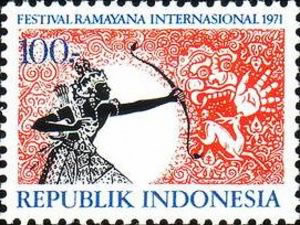For some people the episode of Rama exiling Sita to the forest, while she was five months pregnant, is one of the most disturbing and incomprehensible events in the Ramayana. It seriously tests their faith; and in some cases actually breaks it, leading some to even offend Lord Rama. They forget it is a divine lila and that the Lord has His own reasons for doing what He does, and that they are not always within the purview of our tiny understanding.
Most devotees realize that we cannot always enter into the Lord’s mysteries. That we have to accept Krsna on His terms, and that no matter how it may seem to us, that Krsna always has our best interests at heart. To them Krsna is their Lord no matter what, as exemplified in the last verse of Lord Caitanya’s Siksastaka.
“I know no one but Krsna as my Lord, and He shall remain so even if He handles me roughly in His embrace or makes me brokenhearted by not being present before me. He is completely free to do anything and everything, for He is always my worshipful Lord unconditionally.”
However the sastras are vast and in them many apparent contradictions and mysteries are resolved including the mystery of why Rama exiled pregnant Sita to the forest.
According to Madhvacarya’s Mahabharata Tatparya Nirnaya 2.3-4 the original Mula Ramayana was a massive work consisting of 100 crore slokas (1 billion) while the currently available Valmiki Ramayana consists of only 24,000 slokas. Thus we only have an insignificant fraction of the original Ramayana making for a lot of lacuna that need to be filled in. In this current Kali yuga that will not be possible but we do get some help from the Puranas most of which have parts dedicated to Rama-lila and often fill in some details not found in the Valmiki Ramayana. As an example Srimad Bhagavatam has three chapters (10-12) in canto nine, dedicated to Lord Rama. The greatest repository of Ramalila in the puranas that I know of is the Padma Purana wherein much of the fifth canto is devoted to Lord Rama. It even includes a narration of theRamayana that took place in a earlier kalpa and is different (kalpa bheda) in some resepects to the more recent Ramayana . This canto is entitled “Patalakhanda” in it the assemble sages ask Suta to give an account of Lord Rama’s activities. Suta in turn narrates a conversation between Vatsyayana Rsi and Ananta Sesanaga.
An Indonesian stamp commemorating
a Ramayana festival.
The 57th chapter in the 5th canto reveals the secret of why Rama exiled Sita to the forest but before getting to that chapter let me first succinctly describe what happened in the previous two chapters so that you understand the context.
The custom in Vedic civilization is that the king would have a vast espionage system in place to understand what was happening both inside and outside his kingdom. Lord Rama followed this practice and had His six main spies go out and listen to what the citizens of Ayodhya said about their king. Five of the spies heard the citizens glorifying Lord Rama with great love and affection. But the sixth spy going to the quarters of the artisans overheard the following conversation of a washer man:
“A washer man, with his eyes red due to anger and full of anger kicked his wife who had stayed at another’s house, and despised her: “From my house, go to the house of him where you stayed for a day. I shall not accept you who violate my commands.” Then his mother said to him: “Do not abandon her who has come (back) to (our) house, who has not committed any fault, and who is free from bad acts.” The angry washer man said to his mother: “I am not as great as Rama as to accept (my wife) who stayed in another’s house. Whatever that king does, might by lawful; (but) I will not accept my wife who has stayed in another’s house.” He again and again said these words: “I am not king Rama who protected Sita that had stayed in another’s house.”Padma Purana 5.55.68-73
The spy was greatly angry to hear such defamation of Rama and Sita but did not kill the offender remembering Rama’s command not to kill any of His subjects. All the spies agreed that this negative report should not be given to Lord Rama. But in the morning when they met with Rama it became evident from his countenance that the spy was hiding something. But, despite continued commands from Rama he refused to divulge the popular scandal started by the washer man. Finally one of the other spies told him “you have to tell what was said by the artisans (sudras), even if it is not fit to be told.”
At that point the spy after being persistently asked by Rama very reluctantly retold what he had heard. The words fell on Rama like a thunderbolt and He fainted. On regaining His senses He asked for his brother Bharata and explained to Him that He (Rama) had now brought infamy to His lineage because of the insults of the washer man regarding Sita. He asked Bharata “should I abandon my (pregnant) wife or commit suicide?”
Bharat tried to dissuade Rama by reminding that even Lord Brahma declared Sita to be pure. But Rama replied that He knew that but was afraid of a public scandal and again ordered Bharata to either exile Sita or cut off His (Rama’s) head. On hearing such unpleasant words Bharata also fainted.
Up to now the narration is familiar to those acquainted with theRamayana. The next chapter reveals the secret of why Sita was exiled by revealing the previous birth of Krodhana, the washer man – the only person in Ayodhya who criticized Sita, bringing infamy to Rama. At this point we turn to the Padma Purana canto 5, chapter 57.
Source:http://shyamasundaradasa.com/jyotish/resources/articles/non-jyotish_articles/sita_exiled.html

Comments